Archive | Environment RSS feed for this section
Environment
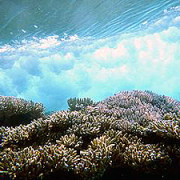 Energy, Environment
Energy, Environment
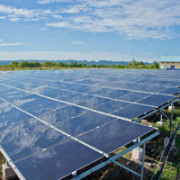 Environment
Environment
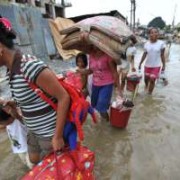 Environment
Environment
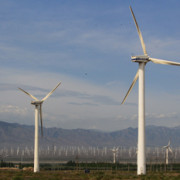 Environment
Environment
 Environment
Environment
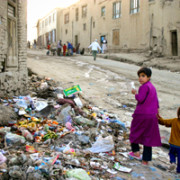 Environment
Environment
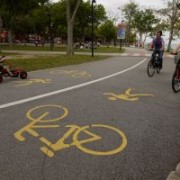
Realizing the Paris Agreement: How can Asia manage the transition to a low-carbon economy?

As the world celebrates the Paris agreement, after 20 years of fraught meetings, its significance for the future development pathways of the emerging economies of Asia cannot be underestimated. Critically, it will increase the flow of additional public and private finance for vulnerable countries for both low carbon and climate resilient investments. Low-carbon green growth pathways toward a possible 1.5°C limit and 5-year reviews will be played out through the Intended Nationally Determined Contributions (INDCs).
Green investment in Asian cities: Lessons from the People’s Republic of China, Indonesia, and Japan

The concept of “green growth” has been connected to the “green economy for sustainable development and poverty reduction,” which is the first theme of the Rio+20 United Nations Conference on Sustainable Development (UNCSD). In addition, making cities and human settlements inclusive, safe, resilient, and sustainable is becoming one of the 17 sustainable development goals proposed by the Open Working Group on Sustainable Development Goals targeted to replace the United Nations Millennium Development Goals which will expire in 2015.
Window of opportunity still open on climate action

A set of reports by the Intergovernmental Panel on Climate Change (IPCC), the last of which was released on November 2, 2014, sets the scene for governments to renew their efforts on the issue through ambitious commitments for a comprehensive climate agreement in Paris in December 2015.
Time for an Asian environmental miracle?

The world is changing fast as Asia continues to surge ahead. In less than two generations, the Republic of Korea has gone from being one of the poorest countries in the world to one of the richest and a global leader in technology and manufacturing. The People’s Republic of China (PRC) is set to become the largest economy in the world in 2014. In Viet Nam, 15-year-olds are performing above OECD average in education. Under the new leadership of India's Prime Minister Narendra Modi, India will aim for the skies.
The food, water, energy nexus

Striking rates of economic growth notwithstanding, 550 million people remain hungry in the Asia and Pacific region, 65% of the population has no safe piped water, and more than 600 million people live without electricity. Overcoming these problems requires a combined approach in which food, water and energy are treated as a nexus, rather than as separate, standalone issues, which has too often been the case in the past.
Green cities: Changing the culture of waste

Asia’s drive to urbanize is taking an increasing toll on the environment with growing mountains of solid waste as city dwellers consume and discard resources at an ever increasing rate. If “green” cities are to be the answer to these environmental stresses then they will need to develop much more effective programs to reduce, reuse, recycle and recover waste.
Urbanization can be good for the environment

Urbanization degrades the environment, according to conventional wisdom. This view has led many developing countries to limit rural—urban migration and curb urban expansion. But this view is incorrect. There are a number of reasons urbanization can be good for the environment, if managed properly. First, urbanization brings higher productivity because of its positive externalities and economies of scale. Asian urban productivity is more than 5.5 times that of rural areas. The same output can be produced using fewer resources with urban agglomeration than without. In this sense, urbanization reduces the ecological footprint. The service sector requires urbanization because it needs a concentration of clients.


Search
Subscribe / Connect to Asia Pathways
Subjects
- Agriculture and natural resources
- Blog
- Capacity development
- Climate change
- Economics
- Education
- Energy
- Environment
- Finance sector development
- Gender
- Governance and public sector management
- Health
- Industry and trade
- Information and Communications Technology
- Infrastructure
- Miscellaneous
- Population
- Poverty
- Private sector development
- Regional cooperation and integration
- Sanitation
- Social development and protection
- Transport
- Uncategorized
- Urban development
- Video Blog
- Water
Recent Posts
- Transforming ASEAN: Advancing Regional Integration, Social Inclusion, and Environmental Sustainability
- Development of the Creative Economy in Asia and the Pacific
- Kashima City’s Great Transformation: Where Industry Meets Community
- Mechanization Driving the Future of Agriculture in Asia
- Natural Capital: Valuing Nature to Protect and Restore Ecosystem Services for Sustainable Development




Recent Comments